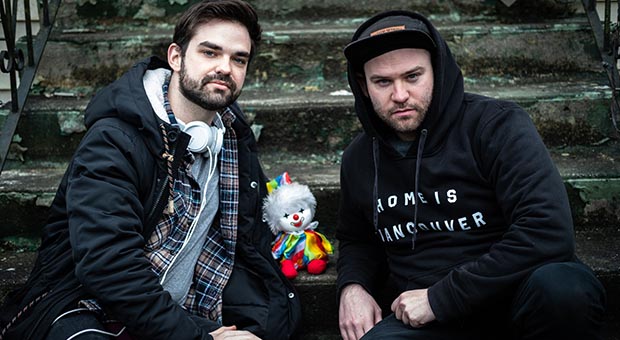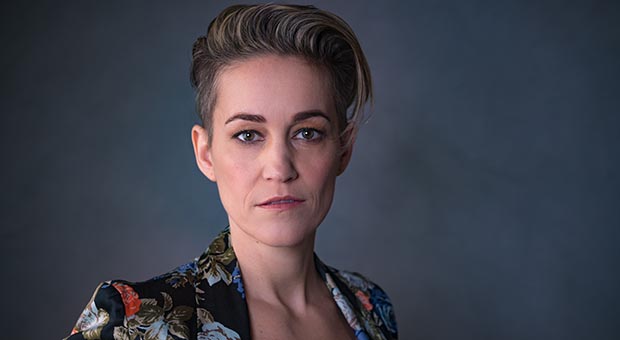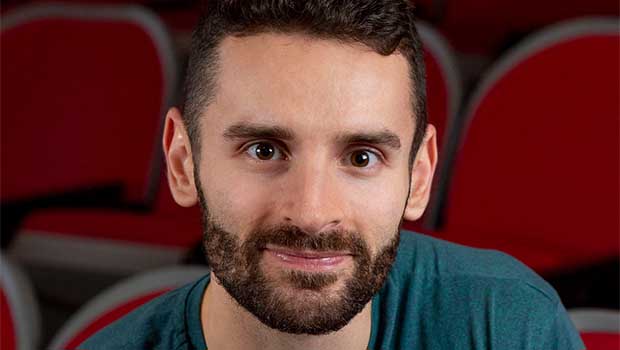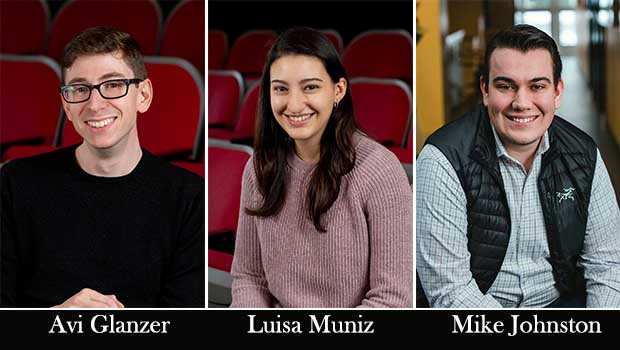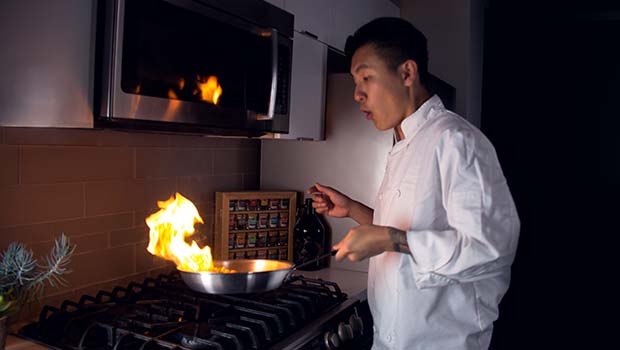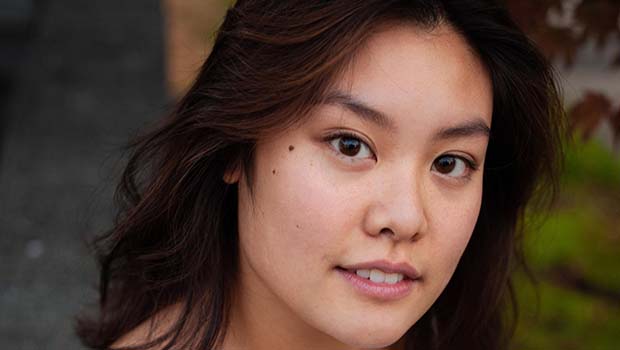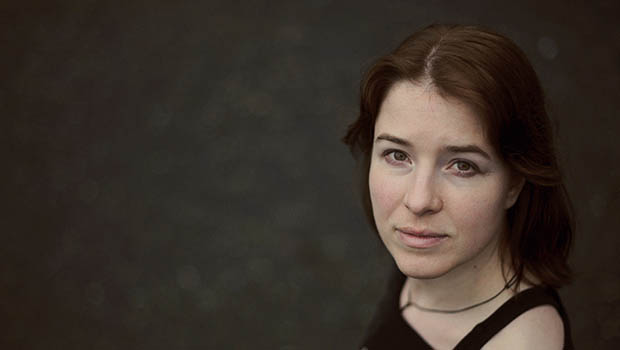
23 May The Biz Interview: Jordan Hall
How to Survive an Apocalypse is the newest entry in the 40th anniversary season from Touchstone Theatre. The quirky tale is the most recent work from rising playwright Jordan Hall, who earned the Samuel French Canadian Playwrights Competition with Kayak, her first full-length play in 2010.
We spoke to Jordan Hall to find out more about how her creative mind works and the idea of building a romantic comedy mixed with apocalyptic themes came to be.
________________________________
Can you start by telling us a little bit about you and How to Survive an Apocalypse?
I’m a playwright and screenwriter in Vancouver, British Columbia. I’m probably most recognized for my previous play, Kayak, which is about climate change and activism and not getting along with your mother-in-law—and in a lot of ways How to Survive an Apocalypse is a follow-up to that: A romantic comedy about preppers and hipsters and the looming spectre of the Apocalypses (whether personal, professional, or global) that await us all.
What was the inspiration for the story?
Plays tend to creep up on me. How to Survive emerged out of the collision of a lot of things I was experiencing and observing back in 2013 and 2014—There had been this resurgence of apocalyptic ideation (with movies like This is the End, It’s a Disaster, and Seeking a Friend for the End of the World), which crashed into the new visibility of the Prepper movement in mainstream culture, and the pressure of scarcity and growing inequality on the prospects for the current cohort of young adults—all of that sort of smashed together into the kernel of the play. I could see this young couple, who’d felt like they had such a promising life ahead of them, having to grapple with adulthood in the pressures of this environment—and turning to prepping as kind of an escape valve to avoid dealing with the spectres of personal and professional failure. And maybe I just have a really bleak sense of humour, but that seemed hilarious to me.
What should audiences expect to see on stage?
A romantic comedy for the End of Days. A kind of heightened portrait of where I think people my age (and a little older and a little younger) find themselves as they face the challenges of maturity. And probably some of the least effective survival training anyone has ever seen.
What was your writing process like in creating the script?
You mean beyond: Get up, Make Tea, Open Laptop, Clutch Head?
Whenever I can, I like to engage in practical research. While I was writing How to Survive, I went through the process of getting my hunting license, took urban and rural survival courses, and even started a permaculture certificate—all to get a solid material sense of the world of prepping and survivalism.
Much of my actual writing process is really about drilling down into character. One of my biggest projects as a writer is the creation of female characters, and in particular female protagonists, who are afforded the same degree of agency and psychological scope as their male counterparts. A real challenge in How to Survive was to take the figure of the rom-com heroine, a figure that’s frequently use to reinforce unfortunate tropes about female behaviour, and to try to build a character in Jen who feels like a real person, grappling with failure and disappointment and the difficulties of navigating relationships between feminist ideals and the lingering expectations of entrenched patriarchy.
What advice would you offer to aspiring playwrights?
Be utterly, hopelessly in love with theatre. There are a lot of ways you can become a writer, a lot of ways you can become an artist—If you’re going to write plays, do it because there’s something essential about the communion with the audience that happens in that space, about the potential for magic inherent in the unity of space and time, about the flexibility the form affords to really experiment with the relationship between form and content. Write plays because you want, more than anything, the space to play with those things. The space to be as fearless as possible.
What was the biggest challenge for you in writing the play and how did you deal with it?
This was actually one of those rare plays that came together structurally quite early in the process, possibly because I knew I wanted to play with the comedy of remarriage as a genre, and that offered this amazing structural template. Which isn’t to say we didn’t push hard in workshop, driving for the moments of realism that keep the content of the play in tension with that structure—and that is absolutely where the alchemy of the play lives for me.
What’s the most rewarding element for you about writing?
I think what I love most about writing is the space it opens up for you to be deeply interested in so many things: I’ve written plays about fairy tales and climate change and particle physics and each of them was an opportunity to learn so much about a whole new world. I love the chance to try to empathize with characters whose psychology is very different from my own, to dig at the knotty, gnarly heart of the problems that they live with. I love the way writing is always an attempt to understand the infinite complexities of the world.
Also the jokes. There’s very little in the world that’s as fulfilling as an audience laughing at your jokes.
What plays, books, and authors have been influential in your career so far?
Tom Stoppard. I’m continually in awe of the way he merges the intellectually rigorous and the entertaining. Yasmina Reza, who creates comedies that are so incisive about both the hypocrisy and the human heart of privilege. I really love both Charlie Kaufman and The Coen Brothers for the ways they’re engaging with genre. And Shaw. Always, always George Bernard Shaw.
What other projects are you involved with at the moment?
I’m currently writing Season 3 of Carmilla: The Series for ubykotex and SmokeBomb Entertainment. I’m also working on a play about our relationship to biodiversity and manmade extinction called Rate of Loss, for Up in the Air Theatre. And it’s pretty new—but I was just lucky enough to be awarded a commission with Western Canada Theatre for what I’m thinking of as a “nursing home revenge comedy” called The Smallwood Solution.
Where can we find out more about you and How to Survive an Apocalypse?
I can be found online at JordanHall.ca and @save_my_script on Twitter.
________________________________
Thanks to Jordan Hall for speaking with us!
How to Survive an Apocalypse is on from June 2nd until June 11th the Firehall Arts Centre. For tickets, please visit tickets.firehallartscentre.ca.


